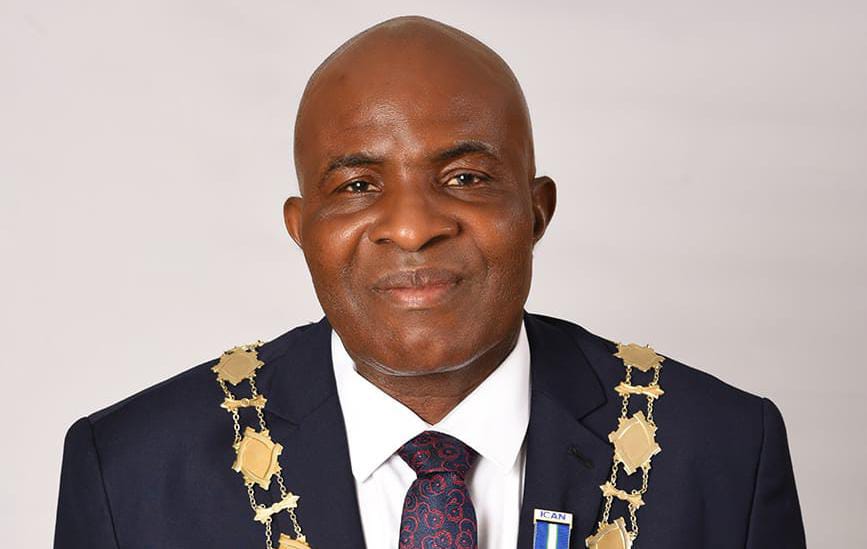Corruption and financial mismanagement remain critical issues undermining Nigeria’s development, as highlighted by Davidson Alaribe, the President of the Institute of Chartered Accountants of Nigeria (ICAN). In a recent interview, Alaribe emphasized the importance of implementing existing policies, reforming the judicial system, and fostering ethical practices to address these challenges effectively.
Nigeria boasts robust constitutional provisions for financial management, outlining the roles of state, federal, and local governments, as well as mechanisms like the Auditor General’s oversight. However, these structures are hampered by poor implementation. Alaribe lamented cases where Auditor Generals faced dismissal for advising against unethical practices, raising questions about the accountability of leaders and societal support for whistleblowers.
A significant focus of Alaribe’s remarks was the judiciary’s role in combating corruption. He called for the establishment of special courts dedicated to fraud cases, suggesting strict penalties such as life imprisonment or even the death penalty for severe corruption. Such reforms, he argued, could expedite trials, deter unethical practices, and restore public trust.
Ethical lapses among professionals, including accountants, are another concern. ICAN has implemented a disciplinary process to address misconduct, ensuring that accused members and their accusers are given fair hearings. Alaribe underscored the importance of societal reorientation, advocating for values that prioritize integrity over wealth. “The language of money is what we now understand,” he lamented, stressing the need to educate younger generations about the benefits of uprightness.
In addition to curbing corruption, Alaribe addressed concerns about customer exploitation by Nigerian banks. He encouraged citizens to report unjust charges and emphasized financial literacy, advising Nigerians to understand the terms of loans and agreements before signing. ICAN also collaborates with regulatory bodies like the Central Bank of Nigeria (CBN) to address systemic issues.
On tax reforms, ICAN is actively examining policies to provide informed recommendations, demonstrating its commitment to shaping Nigeria’s economic landscape.
Finally, Alaribe lauded ICAN’s structured leadership succession plan, likening it to a relay race where each president builds on the achievements of their predecessors. This model ensures continuity and collective progress.
In conclusion, addressing Nigeria’s financial and corruption challenges requires concerted efforts from the judiciary, government, professionals, and the public. ICAN’s proactive stance on these issues offers a pathway to a more transparent and accountable future.










I dont buy it! Corruption is ingrained in Nigerias culture. ICAN cant fix that with just a call for action.
I think ICANs call for action in Nigeria is just a band-aid solution. We need a complete overhaul of the system.
ICANs action is a step in the right direction. Change takes time and every effort counts.
ICANs plan wont work unless they address deep-rooted cultural norms. Corruption is ingrained in Nigerian society. Time for a real change!
I think corruption in Nigeria is deeply ingrained and will never be fully eradicated. Lets focus on practical solutions!
I think ICANs focus on corruption in Nigeria is necessary, but isnt there more to financial management than just tackling corruption?
I think ICAN should focus on educating citizens on financial literacy instead of just blaming the government. Personal responsibility matters too!
Education and government accountability are not mutually exclusive. Both are necessary for societal progress.
I think ICANs call for action is just a band-aid solution. We need a complete overhaul of the system!
ICANs action is a step forward. Change takes time, start somewhere. Patience is key.
I think ICAN should focus on educating youth on financial literacy instead of just calling for action. Prevention is key!
I think corruption in Nigeria will never be fully eradicated. Its deeply rooted in the system. ICAN needs to focus on realistic solutions.
Corruption can be fought with determination and accountability. ICAN must lead by example.
I think ICAN should focus on educating the youth about financial literacy instead of just calling for action. Prevention is key!
Agreed! Teaching financial literacy early can help prevent future financial struggles. Education is power.
I cant believe ICAN is pushing for more regulations! Lets trust the government to clean up corruption instead.
I think corruption in Nigeria is overblown. Maybe we should focus on other issues like healthcare or education instead.
I think ICAN is wasting their time. Corruption is deeply rooted in Nigerias culture. Maybe its time for a radical approach.
ICANs efforts are crucial for change. Its not about culture, its about accountability. Keep pushing.
I dont think ICANs call for action will make a difference. Corruption is too deeply rooted in Nigerias system.
I dont think ICANs call for action will make any difference. Corruption is deeply rooted in Nigerias system. Time for radical change!
I think ICAN should focus on individual accountability instead of just calling for action. Lets name and shame the corrupt!
I disagree, ICANs call for action on corruption in Nigeria is misguided. There are deeper issues to address first.
I disagree with ICANs approach. They should focus on grassroots education to truly tackle corruption in Nigeria.
Do you think ICANs call for action will actually make a difference in tackling corruption in Nigeria? Im skeptical.
ICANs call for action on corruption in Nigeria seems promising, but will it actually lead to tangible results or just more empty promises?
I believe ICANs call for action is crucial in combating corruption in Nigeria. Accountability and transparency are key!